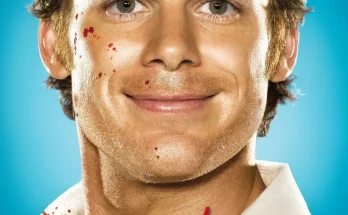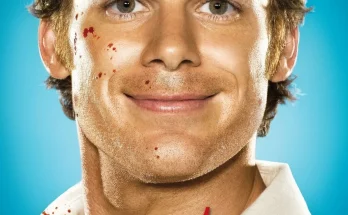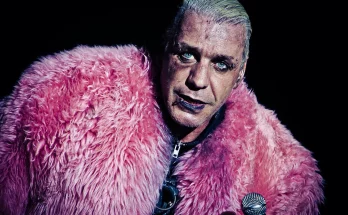Netflix has built a reputation for diving deep into the lives of some of the most intriguing figures in music, sports, and entertainment, and now they are turning their focus to a figure who has captivated millions around the world with his voice, his stage presence, and his openness about personal struggles. Dan Reynolds, the frontman of Imagine Dragons, is the latest to be at the center of an explosive new Netflix documentary, one that promises to peel back the curtain on both the highs and lows of his journey. This announcement has already sparked waves of excitement across fan communities, music circles, and cultural commentators who see Reynolds as more than just a rock star. He has become a voice for mental health advocacy, LGBTQ+ rights, and a figure who often uses his platform to address issues that many other artists shy away from. The documentary is not just being marketed as a look at the career of a Grammy-winning frontman, but as an untold story that digs into the person behind the music and the battles that shaped his evolution as an artist and activist.
Dan Reynolds’ rise to fame with Imagine Dragons is the type of story that often gets condensed into neat soundbites: a young musician from Las Vegas forms a band, signs a record deal, and explodes into international fame with a string of arena anthems like “Radioactive,” “Demons,” and “Believer.” But what Netflix promises to do is strip away the glitz of stardom and tell a story about the relentless pressure, the internal battles, and the vulnerability behind those huge hits. Reynolds has never been shy about talking openly about depression, anxiety, and the struggles of maintaining balance in a life defined by relentless touring schedules and public scrutiny. Yet even though he has spoken publicly in interviews and on social media, fans have only seen fragments of the full story. This documentary seems poised to weave those fragments into a narrative that is both inspiring and raw, giving audiences access to never-before-seen footage, interviews, and personal accounts from Reynolds himself and those closest to him.
One of the most intriguing elements of the announcement is the emphasis on the “untold story.” For years, Reynolds has been known not just as a musician but also as a controversial and polarizing figure in certain circles. His outspoken advocacy for LGBTQ+ acceptance within the Mormon community, his candid exploration of faith and doubt, and his sometimes contentious relationship with critics of Imagine Dragons’ music have made him a lightning rod of sorts. The documentary is expected to cover these dimensions in detail, moving beyond the sanitized image of a rock star into the complex reality of a man who has often stood at the intersection of art, faith, identity, and activism. Netflix has hinted at interviews not only with bandmates but also with family members, critics, activists, and even those who may disagree with Reynolds’ outspoken stances, which suggests a balanced and nuanced portrayal rather than a simple celebration.
Reynolds’ journey is not just about personal struggles but also about his efforts to create change on a broader scale. His LoveLoud Festival, launched in 2017, has become a major platform for LGBTQ+ youth in Utah and beyond, providing visibility, resources, and community in a space where acceptance is not always guaranteed. The festival was born out of Reynolds’ frustration with the high rates of suicide among LGBTQ+ youth in conservative religious communities, particularly within Mormon culture. This initiative not only showed his willingness to use his platform for advocacy but also highlighted the personal evolution of someone who once felt torn between his upbringing and his evolving worldview. The documentary is expected to dive deeply into the creation and growth of LoveLoud, showing how a rock star’s influence can transcend music charts and have tangible impacts on real lives. For many fans and advocates, this will likely be the heart of the documentary, the moment when Reynolds’ celebrity intersects with his humanity in the most profound way.
Another dimension that the documentary will likely explore is the toll of fame itself. Imagine Dragons’ success has been meteoric, with record-breaking singles and sold-out tours around the world. But with that success came criticism, and Reynolds himself has been candid about the mental and emotional strain of being in a band that became, at one point, the face of mainstream alternative rock. Critics often dismissed Imagine Dragons as “too commercial” or “manufactured,” and Reynolds has admitted to struggling with those labels, especially when paired with his own battles with depression and chronic illness. By pulling back the curtain on these experiences, the documentary could resonate not only with fans but with anyone who has felt misunderstood or underestimated despite giving their all. In an era where discussions around mental health are finally becoming normalized, Reynolds’ willingness to lay bare his struggles can be both relatable and deeply impactful.
Netflix’s decision to focus on Reynolds also reflects a larger trend in documentary storytelling, where the emphasis is not just on celebrity or fame but on the human stories behind them. Audiences have responded enthusiastically to documentaries about figures like Taylor Swift, Beyoncé, and Billie Eilish, not simply because of their music but because of the raw, personal revelations that humanize them. Reynolds, with his mix of vulnerability and defiance, seems like an ideal subject for this type of storytelling. For Imagine Dragons fans, this documentary will be an opportunity to see their hero in a new light. For those who have never connected with the band, it may be a chance to appreciate Reynolds as a person rather than a performer, someone whose story of resilience and activism transcends musical taste.
The timing of the announcement also feels significant. In recent years, Reynolds has balanced fatherhood, activism, and music in ways that reflect a shift from the frenetic energy of a younger rock star to a more mature and reflective stage of life. He has spoken openly about his marriage, separation, and reconciliation with Aja Volkman, his wife and fellow musician, and about the challenges of raising children while maintaining a demanding career. Netflix is likely to explore these dimensions as well, offering a portrait of Reynolds not just as a rock star but as a husband, father, and human being navigating the same struggles many people face, albeit under the magnifying glass of fame. This approach ensures that the documentary will appeal to audiences beyond the music world, tapping into universal themes of resilience, family, love, and identity.
The anticipation surrounding the documentary also raises questions about how much Reynolds himself has been involved in shaping its narrative. While some documentaries take an independent, journalistic approach, others are more collaborative, with the subject having significant input on what is included. Netflix has not confirmed the level of Reynolds’ involvement, but given his history of being outspoken and hands-on with projects like LoveLoud, it seems likely that his voice will be a guiding force. This could ensure authenticity, but it also raises the challenge of balancing Reynolds’ perspective with outside viewpoints, particularly around controversial topics like religion, sexuality, and the criticisms leveled at Imagine Dragons. The most impactful documentaries often thrive in that tension, offering both empathy and critique, and it will be fascinating to see how Netflix navigates this balance.
For Imagine Dragons, this documentary could mark a new chapter in their cultural legacy. While they remain one of the most successful bands of their generation, their reputation has often been defined by commercial success rather than critical acclaim. A deep, nuanced portrayal of their frontman could shift the narrative, positioning Reynolds not just as a pop-rock figure but as a cultural force in his own right. If done well, the documentary could spark a reevaluation of Imagine Dragons’ place in music history, not only for their chart-topping hits but for the way they became a vehicle for Reynolds’ larger mission of advocacy and personal truth. For fans, it will be a chance to celebrate a figure who has given them anthems of resilience. For skeptics, it may be an invitation to look beyond the stereotypes and see the complexity of the man behind the band.
Ultimately, Netflix’s announcement of Dan Reynolds’ untold story feels timely and necessary. In a world where celebrity often feels manufactured and curated, there is something compelling about peeling back the layers to reveal authenticity, even when it’s messy or uncomfortable. Reynolds has never claimed to be perfect, and that imperfection is precisely what makes his story so resonant. The documentary has the potential to be more than just entertainment; it could be a catalyst for conversations about mental health, acceptance, resilience, and the power of using a platform for good. As anticipation builds, one thing is clear: this will not be just another rock star documentary. It will be a window into the life of someone who has spent years encouraging others to be vulnerable and true to themselves, and now is ready to show that same vulnerability on the world’s biggest streaming stage. At 1500 words, it cannot capture every nuance of what Netflix is promising to reveal, but it can capture the excitement, the significance, and the impact of this upcoming project. Dan Reynolds’ untold story is about to be told, and it promises to be as explosive, emotional, and unforgettable as the anthems that made him a global star.



